Blog
Download our brochure

Stay informed
In the ever-evolving world of HVAC (Heating, Ventilation, and Air Conditioning), understanding system certifications and standards is crucial for professionals aiming to deliver high-quality, energy-efficient, and safe installations. As technology advances and environmental concerns grow, the landscape of HVAC certifications and standards has expanded, making it essential for contractors, engineers, and building managers to stay informed. This article delves into the importance of these certifications and standards, providing a comprehensive overview of the key organizations, certifications, and guidelines that shape the HVAC industry today.
The importance of HVAC certifications and standards
HVAC certifications and standards play a pivotal role in ensuring the safety, efficiency, and sustainability of heating, ventilation, and air conditioning systems. These guidelines are established by various organizations worldwide and are designed to:
- Ensure safety: Standards set minimum requirements to prevent hazards such as electrical faults, refrigerant leaks, and fire risks.
- Promote energy efficiency: Certifications encourage the use of energy-efficient technologies, helping reduce overall energy consumption and greenhouse gas emissions.
- Guarantee quality: Adherence to standards ensures that HVAC systems meet specified performance criteria, providing reliable and consistent operation.
- Facilitate market access: Compliance with international standards can be crucial for market entry, especially in regions with strict regulatory requirements.
For HVAC professionals, understanding and implementing these standards is not just about compliance; it is about enhancing the reputation of their work, reducing liability, and contributing to a sustainable future.
Key HVAC certification bodies and standards
Several organizations globally are responsible for developing and maintaining HVAC standards and certifications. These bodies ensure that the HVAC systems meet the required benchmarks for safety, efficiency, and environmental impact. Some of the most influential organizations include:
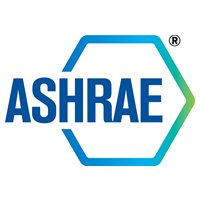
ASHRAE (American Society of Heating, Refrigerating and Air-Conditioning Engineers)
ASHRAE is one of the most prominent organizations in the HVAC industry. They develop and publish standards, guidelines, and research to advance HVAC&R technology and improve building performance. ASHRAE's work has been very influential to HVAC designers and installers around the world, promoting principles that enhance energy efficiency, indoor air quality, and human comfort. Their renowned ASHRAE Handbooks are comprehensive technical resources for the industry. Their standards, such as ASHRAE 90.1 (Energy Standard for Buildings Except Low-Rise Residential Buildings) and ASHRAE 62.1 (Ventilation for Acceptable Indoor Air Quality), are widely recognized and adopted globally
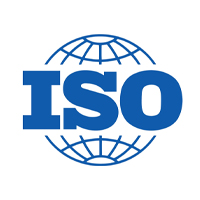
ISO (International Organization for Standardization)
ISO develops and publishes worldwide industrial standards. Their role in HVAC is crucial for ensuring global compatibility, safety, and efficiency. ISO standards cover a very wide range of topics from air quality and ventilation to energy performance and refrigeration. Notable ISO standards in HVAC include ISO 14001 for environmental management systems, ISO 50001 for energy management, and those specific to air conditioning and ventilation systems, including ISO 16890 (Air filters for general ventilation) are crucial for providing a framework for consistent and high-quality HVAC solutions worldwide.
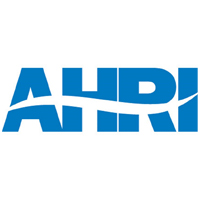
AHRI (Air-Conditioning, Heating, and Refrigeration Institute)
AHRI represents North American manufacturers of HVACR equipment and supplies. They develop industry standards for product performance, energy efficiency, and safety. AHRI certification ensures that products meet specific performance criteria while maintaining product quality, facilitating fair competition, and protecting consumers. AHRI publishes standards and guidelines covering various HVACR components.
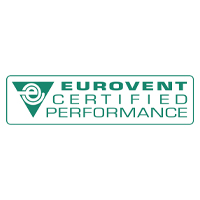
EUROVENT
EUROVENT is a leading European industry association that certifies the performance of HVAC products, focusing on energy efficiency and environmental impact. One of EUROVENT’s key functions is to develop and implement certification schemes. These certifications serve as benchmarks for product performance, energy efficiency, and safety. By establishing clear standards, EUROVENT helps consumers make informed choices and promotes fair competition among manufacturers. Additionally, these certifications contribute to the overall sustainability of the HVACR sector.
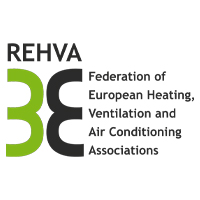
REHVA
REVHA, the European Ventilation Industry Association, is a key player in promoting the development and application of ventilation technologies across Europe. As a central hub for the ventilation sector, REVHA works diligently to enhance the industry's profile and influence on European policies. One of REVHA's primary objectives is to foster innovation and technological advancement within the ventilation industry. By collaborating with research institutions, universities, and industry experts, REVHA drives the development of new ventilation solutions that address emerging challenges such as indoor air quality, energy efficiency, and climate change. Additionally, REVHA plays a crucial role in shaping European policies related to ventilation. The association actively engages with policymakers and other stakeholders to influence legislation and regulations that support the ventilation industry.
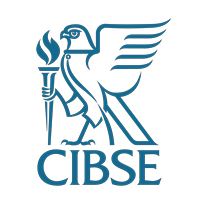
CIBSE (Chartered Institution of Building Services Engineers)
CIBSE is a leading authority in the field of building services engineering. One of CIBSE's core functions is to set standards and guidelines for building services systems. Through extensive research and collaboration with industry experts, the institution develops authoritative documents that provide best practices for design, installation, and operation of HVAC, lighting, and other building systems. These guidelines ensure the efficient, sustainable, and comfortable performance of buildings. CIBSE also prioritizes education and professional development. By accrediting courses and training programs, the institution supports the growth of building services engineers. Additionally, CIBSE offers a range of membership grades, providing opportunities for professional recognition and networking.
Each of these organizations plays a critical role in shaping the HVAC industry, and their standards and guidelines are often referenced in building codes and regulations across the globe.
Global trends and future developments
The landscape of HVAC certifications and standards is continually evolving, driven by technological advancements, environmental concerns, and the need for increased energy efficiency. Some of the key trends and future developments include:
- Increased focus on sustainability: With growing emphasis on reducing carbon footprints, certifications related to energy efficiency and sustainability are becoming more critical. Future standards are expected to further tighten energy consumption limits and encourage the use of renewable energy sources.
- Integration of smart technologies: As HVAC systems become more connected and intelligent, standards will increasingly cover aspects of data security, interoperability, and the integration of IoT (Internet of Things) devices.
- Global harmonization of standards: Efforts are being made to harmonize HVAC standards across regions, making it easier for manufacturers and professionals to operate internationally. This trend is likely to continue as global trade and regulatory cooperation increase.
- Enhanced indoor air quality standards: Post-pandemic awareness of indoor air quality has led to stricter standards and certifications related to ventilation, filtration, and the reduction of airborne contaminants.
Staying ahead of these trends is essential for HVAC professionals who wish to remain competitive and contribute to the industry's evolution.
Conclusion
Understanding HVAC system certifications and standards is fundamental for professionals who aim to deliver safe, efficient, and sustainable solutions. These certifications not only ensure compliance with regulations but also enhance the quality and reliability of HVAC installations. As the industry continues to evolve, staying informed about the latest developments in standards and certifications will be key to maintaining excellence and driving innovation in HVAC practices.
